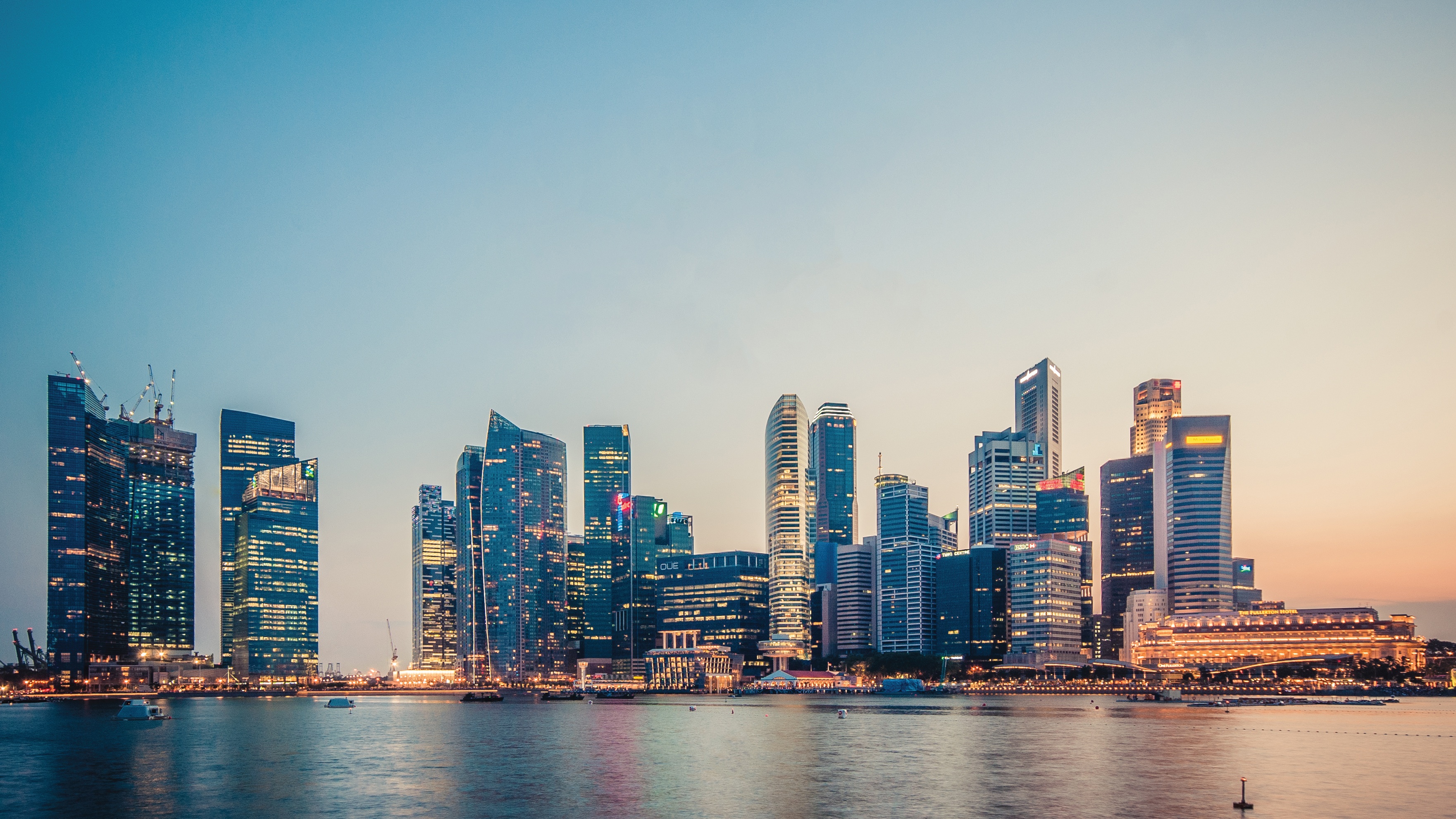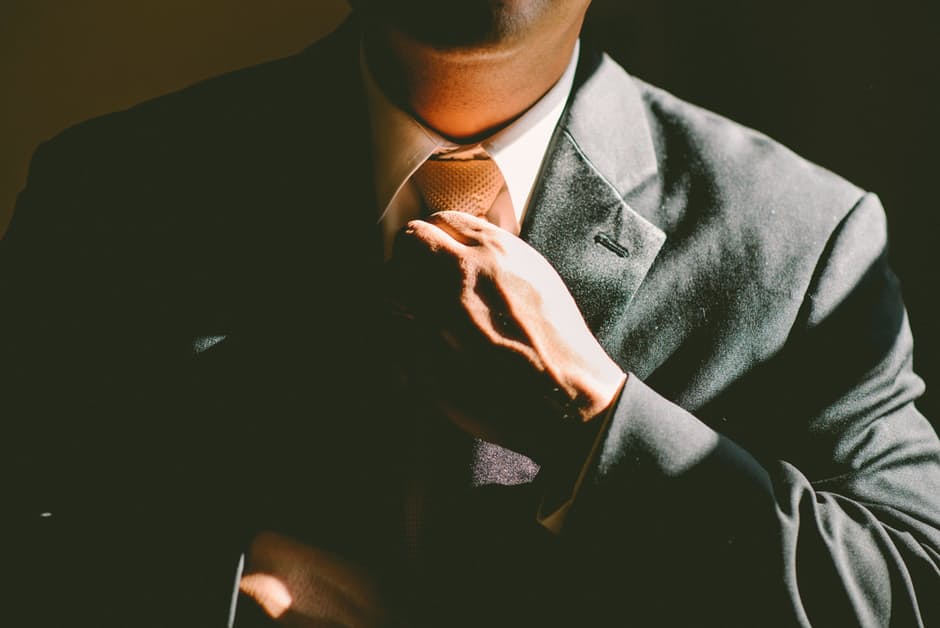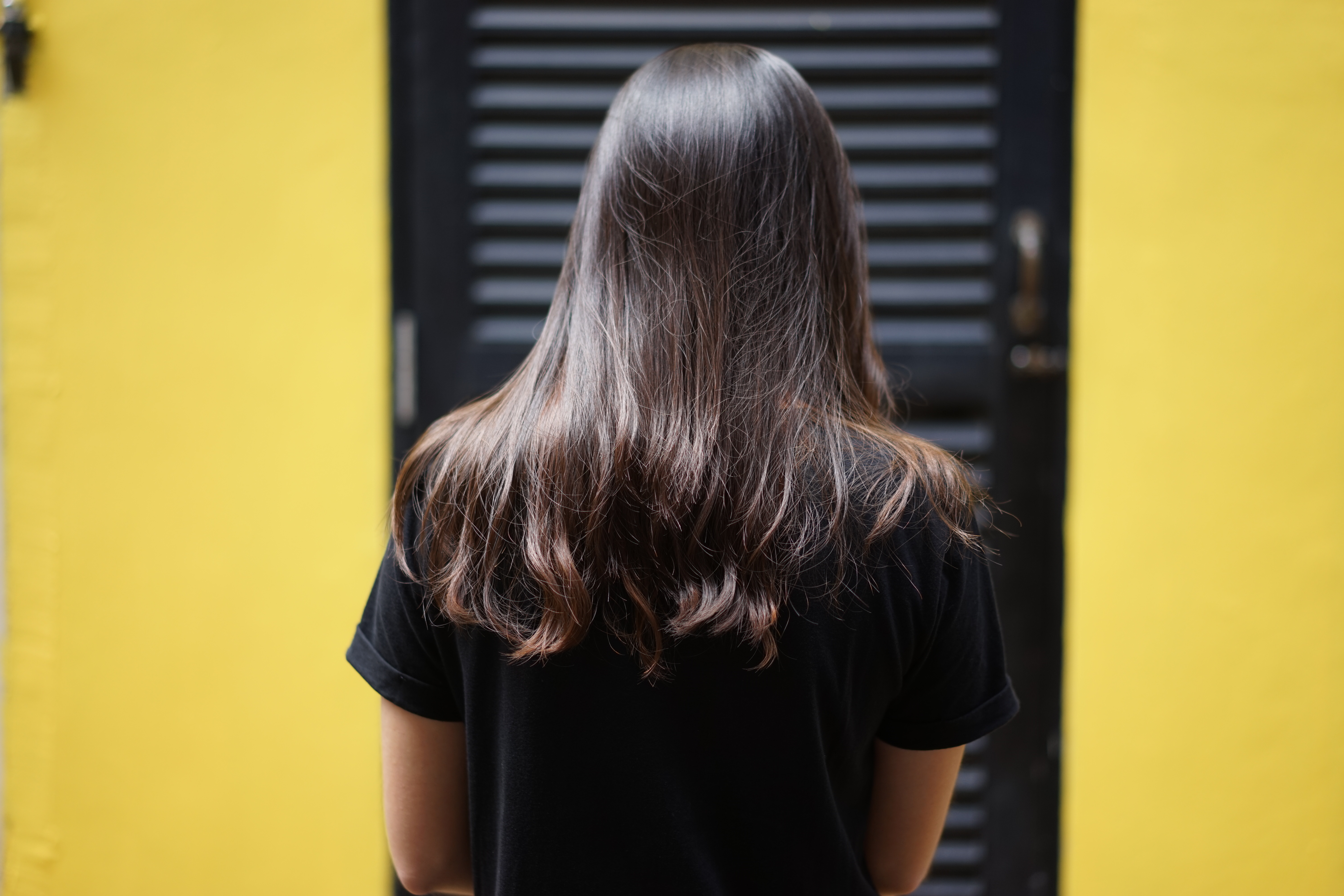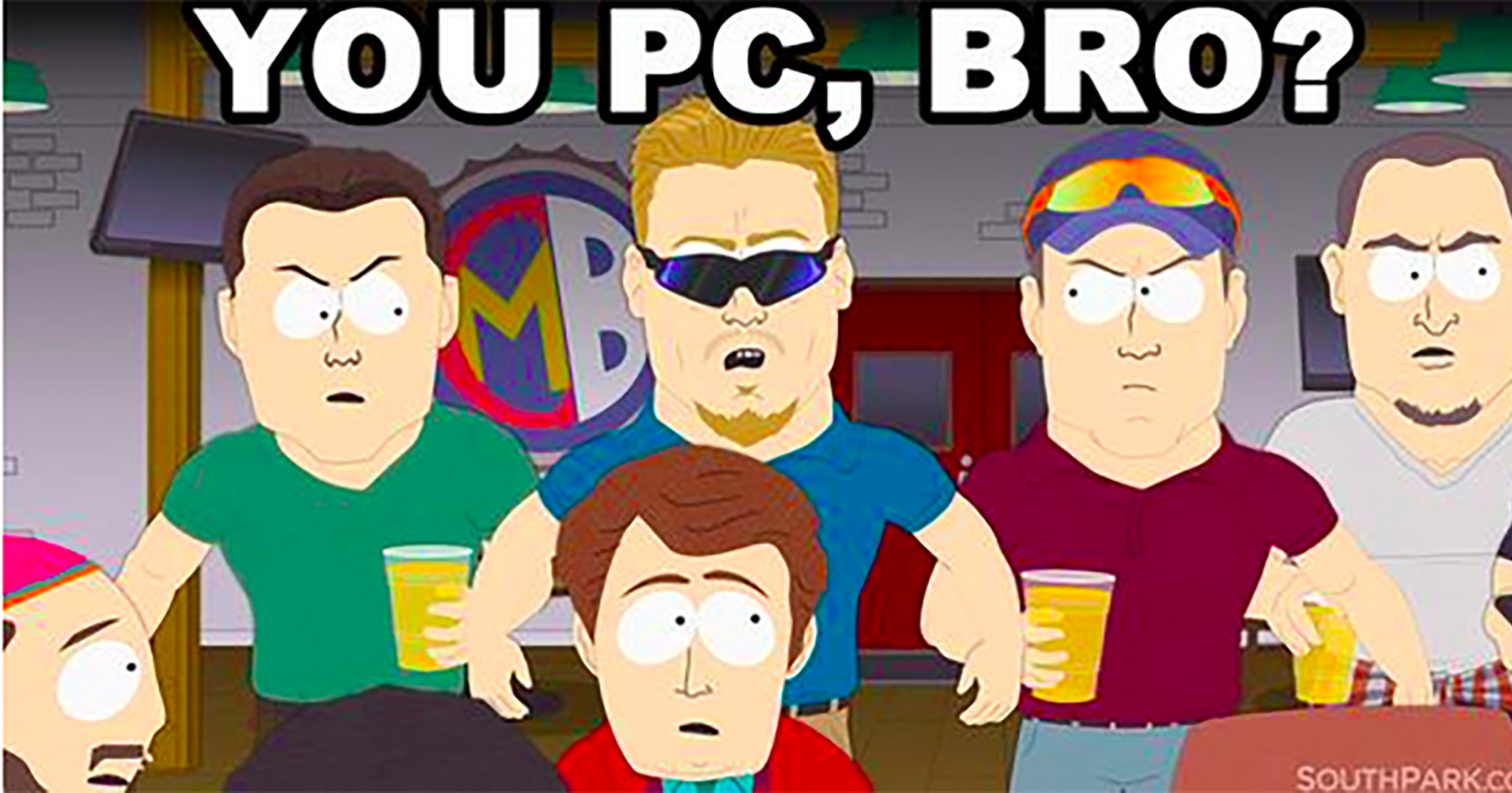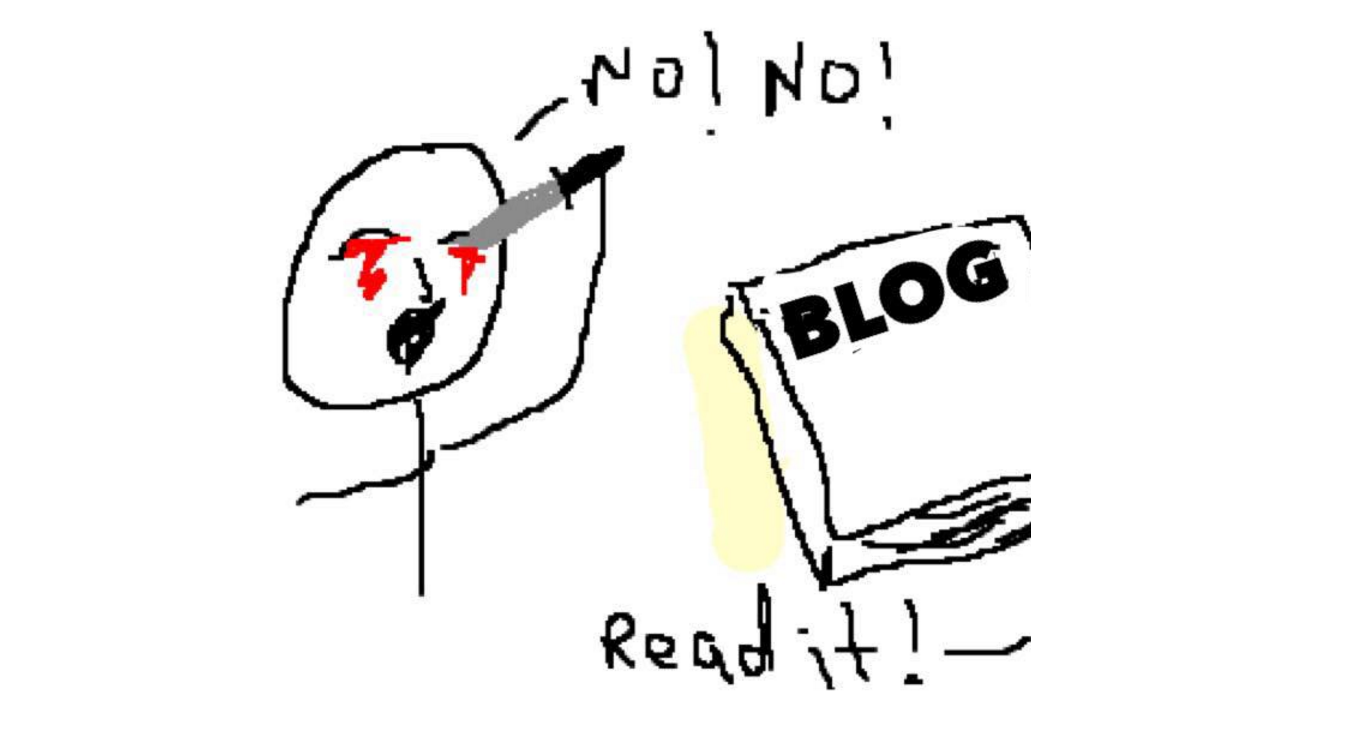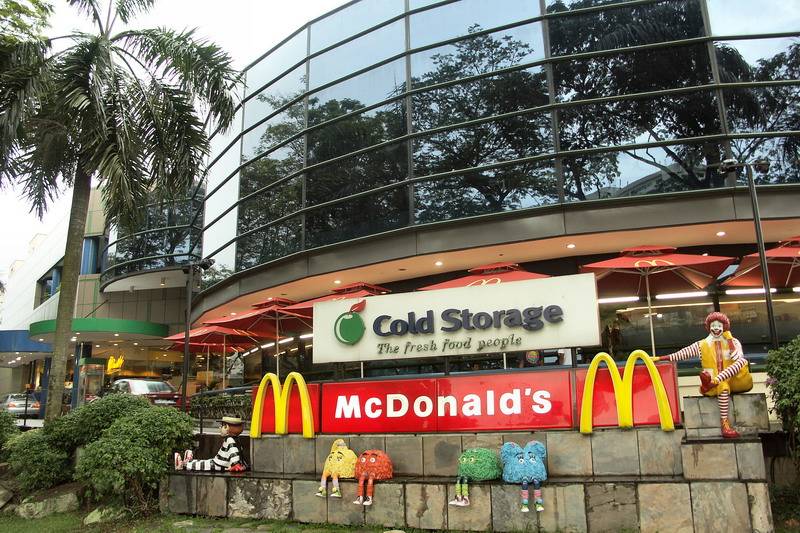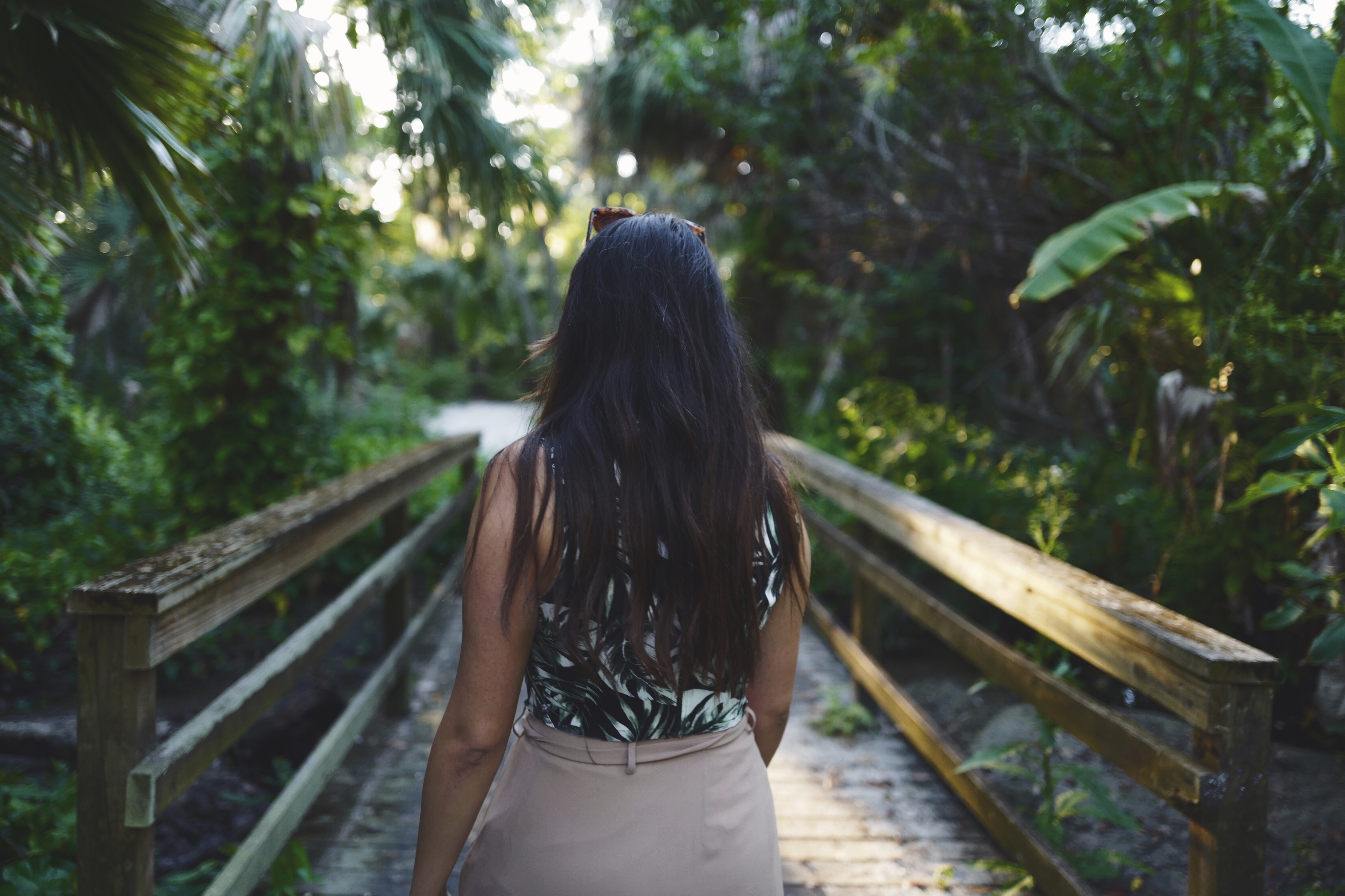When I mention that I lived in Singapore, most people would say “Oh, like Singapore noodles” or “Is that in China?” or “I had to stop there on the way to Australia”.
Although being seen as part of China would be irritating to most Singaporeans, I find the latter the most irksome. I love Singapore. The little country with such rich culture and diversity is so much more than a pit stop en route to Australia.
Before moving to Singapore, I read every travel guide and watched every YouTube video on Singaporean lifestyle and culture. I really scraped the bottom of the virtual barrel of knowledge about Singapore since I was moving more than 11,000km to live here for almost a year! So, here’s what I learned about the mysterious Singaporeans after a year of living, breathing, and eating Singapore.
Singaporeans are polite and obedient
I spent almost a year as an Ang Moh in Singapore. Yes, that’s what I’ll call myself, although most Singaporeans are far too polite to directly refer to me as an Ang Moh, even while they don’t like to admit that the term has any negative connotations. I find this delightfully refreshing after being to China where the locals repeatedly yell "Laowai" at any white person they happen across. Singaporeans are obedient citizens, unparalleled to anywhere in the world (except maybe North Korea, but best not to get into that), although the medieval corporal and capital punishments may have to answer for this level of nationwide good behaviour. You have never seen such orderly queueing as at an MRT station at rush hour. It’s an OCD heaven. Yes, it may be a bit whiffy inside the cramped train but it is heart-warming to know that every aunty can kick an able-bodied young man out of his seat or face the wrath of disapproving glances from other train users. I couldn’t actually believe that youngsters made news and were branded as troublemakers for nothing more than running alongside the train and getting back on before the doors closed. It’s a far cry from a school shooting! Order and rules are respected above all else here in Singapore. I am yet to meet a Singaporean who would even think about disregarding a packet of tissues at an otherwise empty table.Singaporeans are competitive
Singapore has a reputation of being super smart. Yes, it’s true, all the stats say so, but a driving force behind this nation of high achievers is competition. Singaporeans are competitive and big fans of heated discussions... You’re having an argument, just admit it. I would challenge you to find a more competitive nation but I won’t, because that might also cause a “heated discussion”. It is easy to blame the pushy parents on this one - we’ve all seen the Asian father meme. For real though, someone needs to tell your parents that not everybody wants to be a doctor. The main culprit of this competitive culture is the education system. I spent 1 year in that battlefield that is Singaporean 3rd level education, and before you get all argumentative, no, I didn’t just have to get a pass like most exchangers; I actually had to compete with you guys for good grades against the odds of the dreaded “bell-shaped curve”. So, trust me when I say you guys need to chill out. Yes, education is important and you need to work hard if you want good grades, but there is more to life. I unapologetically state that there are things in life which are much more important than good grades. I would quite frankly like to throw De Moivre, Gauss and any other contributor of the bell-shaped curve down a garbage chute of the tallest HDB building (just kidding, I’m a life science graduate, I need that shit).Singaporeans are patriotic, and also not
I had the good fortune of being in Singapore during the 50th anniversary celebrations and I was astonished by the air of national pride Singaporeans have for their country. Singaporeans are fiercely proud of being just that, and how far the country has come since independence. I was also living in Singapore during the death of Lee Kuan Yew, which was oddly terrifying. The passion with which Singaporeans grieved was shocking for us Ang Mohs who hadn’t even heard of him before. However, the underlying resentment of the country's strict policies is apparent especially in the younger generations. Young adults who feel stifled and restricted in Singapore dream of one thing - leaving Singapore. I had fallen in love with this country. I tried to extend my student visa so that I could stay in this beautiful city a little longer, to the dismay of many. I even made a return visit just last summer. I was devastated to hear that most, if not all, of my friends and classmates want to leave Singapore and to set up new lives in Australia or America. Sure, I can see why “the land of the free” might be enticing to young Singaporeans, but Singapore is an amazing place to live, with its stable economy, high employment rates, awesome food, and being arguably the safest place on Earth. So, Singaporeans, don't you all abandon ship just yet.We’ve heard a lot about the woes of women in Singapore – the “Pink Tax”, as it’s been called – but what about the men? What about the Blue Tax?
Yes, there are disadvantages to being a man.
Of course, we don’t believe that gender equality should be measured using tit-for-tat who-has-it-worse comparisons. There are challenges to being both male and female in Singapore, and anywhere in the world, but that doesn’t make it objectively worse to be a man or woman. We just thought it’d be fun to point these out.
National Slavery
Let’s start with the most obvious and glaring issue: National Service. Unless you’re a truly talented bullshitter, you’d find it impossible to argue that the mandatory, systematic militarization of every able-bodied male citizen in a country isn’t an unfair, raw-as-sashimi deal for the men of Singapore. The simple truth is that NS can never be fair to men unless it is made similarly mandatory for women a la Israel. “But it makes sense! Men are stronger than women!” Oh, really? What happened to “women are every bit as strong as men and can do whatever men do’? And have you ever seen how skinny some of our soldiers are? Even as a “trained soldier”, I’d be perfectly willing to admit that there are many women in Singapore who would be capable of kicking my ass and being all-round better soldiers than me given proper training. Sure, men might have a slight edge in the physical rigours of combat overall, but to be honest, any reasonably healthy human being capable of carrying a 4kg rifle can be trained for combat, and if not, service or intelligence duties. Don’t tell me women can’t carry a rifle, some of your handbags feel as heavy as cosmic singularities. You regularly pull hair out of your skin and brisk-walk around in impossibly high heels just to “look good”. You’re not fooling anyone when you say that you could never survive in NS. You just don’t want to because it looks uncomfortable and inconvenient AF. And you’re right. I never wanted to have to deal with NS either, but I was born with a Y-chromosome, so I had to. Hear that? That’s the sound of the blue tax going “cha-ching, mother*cker!”Paying for shit
Whether it’s paying for dinner, drinks, cars, or that overpriced shiny rock on an overpriced metal ring, men traditionally have to foot a much larger bill in the man-woman dynamic than women do. If you’re one of those modern women who actively espouse gender equality by splitting the bill and paying for their own shit, kudos to you. Unfortunately, many women in Singapore aren’t like that, and the men attached to these women get the short end of the monetary stick. There are some who think that since men get paid more than women for the same jobs, it all balances out. Two negatives make a positive, right? This isn’t primary school math, buddy. Two negatives, make, well, two negatives. You don’t achieve equality between genders by compensating one inequality with another. Well, there goes the blue tax counter. Let me just find a nice vantage point from which to watch my money fly away.“Being A Man”
A famous comedian once said, “Be a man! Do the right thing!” Yeah, you know who I’m talking about. Singapore’s typical Asian patriarchy likes to put constant emphasis on “being a man”, which in turn puts a ton of pressure on men to be this perfect version of what society expects them to be. Make a lot of money. Be tall. Have a wide social circle. Drive a big shiny car. Be a part-time chauffeur for free. Don’t grow your hair (or nails) out too long. Make the first move. Put food on the table. Don’t ever become a stay-at-home dad. Women, of course, have their own set of social pressures to conform to, but that takes nothing away from the challenges of being a man in Singapore. It might seem ironic, but the patriarchy screws both men and women over. Top Image CreditWhen I was a child, I believed I was born in Singapore. Like many of you, my earliest memories are of growing up with my Singaporean family, in my Singaporean flat.
When I was 11, while struggling with my Chinese homework, my mother screamed, “Why are you so bad in Chinese when you’re from China?!” That was the day I found out.
That was the day I learned that I was born in China, and adopted by the family I thought was my own.
I am an adoptee, taken from the family that didn’t want me, and raised by a family that treated me like a second-rate child.
I am an adoptee.
And this is my story.
Unwanted and Discarded
In 1979, China introduced the One-Child Policy, which allowed families to have no more than one child or face the possibility of fines, sterilizations, and abortions. Since the Chinese have a strong tradition of patriarchy, with an emphasis on continuation of the family name, boys were favoured strongly over girls. As a result of this policy, many Chinese girls were killed at birth, or given up for adoptions. Am I thankful to be one of the latter group, and not the former? I suppose so, and my adopted mother certainly made it exceedingly clear that I should be. We often have an assumption that adoption is a last resort, that only couples without the ability to have children of their own end up adopting. That wasn’t the case with me. My parents were perfectly capable of conceiving, and they did just that with my older brother, and later, my younger sister. I was an adoptee growing up with siblings that were not adopted, and it sure as hell felt like it. My mother decided to adopt me from my poor family in rural China, for reasons not completely known to me. It might have had something to do with the abortion she had had shortly prior to my adoption, her conversion to Christianity, a simple act of charity, a combination of all of these, or none of them. Whatever it was, she has had to repeatedly make the point to me, from age 11 to this very day, that I owe her.Childhood
I was never a bright kid. I struggled with homework and exams. My mother tried to help me with my homework, but always only ended up scolding and beating me. She would hurl insults at me, calling me demeaning names, and when words weren’t enough to express her contempt, she hit me in the head with her bare hands. One time, she grabbed my little head in her hands and smashed it into a wall, and stopped only when my maid came to my rescue. I never fought back, never even spoke a word out of place. How could I? It would have been so disrespectful. A part of me always felt like I must have deserved the abuse. I must have been really stupid and useless, because my siblings received no such treatment. I had no idea if they were really much smarter than me in school, but from how I was treated at home relative to them, they had to be. It wasn’t until I learned of my adoption that everything started to make sense. The bias, the chores that I had to do from young that my siblings never even had to touch, I thought it was all because I did badly at school. I resented myself for being stupid, and fought tooth and nail for my parents’ approval. My mother said I should look at ITE courses because I’d never make it anywhere else, but I ended up getting a spot in a Polytechnic Psychology course, and later, a local university. It felt good to prove her wrong, but even after all that, my mother’s disdain for me never ceased.Meeting My “Real” Family
When I was 13, I went on a trip to a certain village in rural China to visit my biological family. It was a strange experience, meeting complete strangers who were bound to me by blood, an entire family I had never known. At the same time, though, it was exciting. There was a certain thrill to finally meeting a family whose members actually looked like me. But that’s where our similarities ended. Before my university graduation, I returned to China once again to attend my younger brother’s wedding, and learned more about how vastly different my life could have been. I was frowned upon by the friends and relatives of my biological family, all strangers to me, for being unmarried and child-less at my ripe old age of 22. In the village, marriage was almost never on the basis of love. It was just a way of incurring more wealth, and forging better relationships between families for financial purposes. Others were match-made like my second sister and younger brother to their respective spouses. As for my elder sister, she took a different path - met a city boy, fell in love and then got married after. As of now, my elder sister has a bratty son, while my second sister has two kids with serious attachment issues. As I’m writing this, my younger brother has had two kids, and I wonder how he’s coping. And here I am, still living with a family that looks down on me. It’s like I have two families, but at the same time, none.And Here We are
Today, I’ve come to realize that I will never match up to my siblings in the eyes of my adopted parents, and that’s alright. My family still treats me like a second-class daughter. My younger sister, as always, has no respect for me whatsoever. My unemployed mother constantly demands money and branded goods from me while asking nothing from my siblings. My parents scold me for staying out with my boyfriend, but make snarky comments towards me when I’m at home. I feel bound to my family through years of conditioning, yet feel none of the warmth and love that people say I’m supposed to. I still long for something I’ll never have, to feel like something I’m not – to be a real daughter. <a href=" Image CreditI was born Muslim. I grew up in a Muslim family. While my parents weren’t the most religious of people, my upbringing was very much Muslim. I went for Friday prayers at the neighbourhood mosques, was taught to read the Quran, and would visit the mosque during Hari Raya Puasa and Haji. As a young boy, I went to religious classes every Sunday morning, where we would learn about the different aspects of the religion- it’s history, the five pillars and how to speak Arabic. I attended all my religious classes diligently and even got a certification of completion by the end of it.
Religion for me at the time wasn’t so much about belief as it was about following my parents, because that’s just how it is. You follow the religion of your parents, because they’re your parents and you’re just a child. I did as I was told; No more, no less.
Losing my religion
When I was 14 years old, a friend invited me to a Christmas party. I had no idea it was an evangelistic event until we were an hour in. The pastor was speaking about the death of Christ and its significance. It was only then that I realized I was actually sitting in a sermon. At first I thought, “Shoot, I’m trapped.”, but since I was already there, I listened as the pastor preached about the essence of Christmas. Maybe it was the music, the melody or the words of the worship songs, but somehow that all got me questioning things—questioning if there truly existed a god, because before then, even though I was Muslim, I’d never believed in a higher being; as far as I was concerned, God didn’t exist. Eventually, my beliefs shifted to the point that I started believing in an actual god – the Christian god. I had been converted.Secrets at home, judgement outside
My conversion to Christianity came with no small amount of fear. I had no idea what would become of me if my family were to find out. I was terrified, so I tried my best to keep a low profile. Among my friends, I was Christian—I even ate pork. But when I was home, I was a whole other person. I had to act the part of a Muslim. I couldn’t eat pork. When it was time to fast, I fasted at home but as soon as I was out of my parents’ sight, I broke fast. Part of the act was out of fear, but a big part of it was also out of respect for my parents and what they believed. For about 5 years, I had to lie every Saturday in order to go to church. My mum would always ask me, “why you always go out on Saturdays?” It was lie after lie, last week it was, “I’m going out to study with my friends,” this week it’s, “I’m going shopping for new clothes.” There was always this paranoia that they would find out, and I was constantly waiting for the other shoe to drop. All my friends knew I was a Christian, but not all of them responded positively to this. While most of them accepted it, there were a handful that didn’t, and who would ask me why I converted just so they could shoot me down and rain criticism on me. In school, some of my closest Malay friends would keep their distance from me. They wouldn’t talk to me, which is why I have a lot more Chinese friends now than Malay ones. About 6 years after I converted, when I was in NS, some of the people I knew would attack me because of my beliefs. One of my instructors that found out dragged me to one side after breakfast one day, while we were waiting to go back to our dormitory, and said to me, “Wah, if we’re not in Singapore, I would have killed you already. It would have been my duty to kill you.” I knew he couldn’t do anything, so I retorted, saying, “Yeah, lucky we’re in Singapore. You can’t do anything to me.” Muslims judged me, Christians judged me, even friends I knew who were neither Muslim nor Christian had something to say about it. They would say things like “Eh, like that, aren’t you betraying your own family?” or, “Don’t you think your family will be upset?” This is because there is a Muslim law that holds your family responsible for your faith. If you betray the faith, it’s on your family as well, because it means they haven’t brought you up well.And then my parents found out
Eventually, my parents found out because they found a bible in my room and that’s when all our problems began. I tried reasoning with my dad, explaining that he couldn’t force me to believe in something I didn’t believe in, and that even if I did follow him and “behaved” like a Muslim, he and I both knew that in my heart, I wouldn’t be one. But still, he would keep saying, “cannot”, “cannot”, “cannot”. Things didn’t progress and it came to a point when things became violent. I didn’t want to fight back because my dad was already getting old, so all I could do was block him as he beat me. That day, I ran out of the house half-naked, with not even shoes on; all I had on were my shorts because my shirt had torn from the beating. I didn’t know what to do because I didn’t want to fight back, but at the same time, I was about to explode, so I ran. My pastor—a Malay pastor who has also been through a similar experience—came down to talk to me and comfort me. He offered to open his home to me if things got worse, but he made it very clear that I should try all ways and means to make things right with my parents. I was prepared to run away. I told my mother that if my dad beat me up one more time, I was gone. She told me to come back, to not talk about religion for the time being and promised to make sure my dad didn’t hit me again. From that point on, my family didn’t speak openly to me about religion anymore. Neither did my dad and I speak. That went on for about 2 years.What now?
Today, 8 years on, I’ve made good with my family. They still refuse to accept the fact that I’m Christian, and from time to time, they still try to change my mind about Christianity. When news comes up on Pastor Kong Hee, they make a big deal of it, saying, “see, Christians are like that.” They raise the issue of rich pastors, and they do little things here and there to put down Christianity and lift up the name of Muslims. The more I’ve grown in my faith as a Christian, the more they’ve seemed to grow in theirs as Muslims—my mum, my dad, and my sister. While I’ve been serving and being more active in church, my mum’s started to pray 5 times a day; my dad’s been going to the mosque every day; and my sister’s been going for more advanced religious classes. This year, my parents are going on a pilgrimage to the Middle East. While there is not a war right now, I am fearful that it’s only right around the corner, like when I marry my Christian girlfriend. She might need to convert — at least according to Muslim customs — and I know for a fact that she won’t. Neither of us can fathom being of a religion we don’t believe in. Other people may disagree with me, and they are free to do so. Maybe they’ll say, “I’d rather things be peaceful within my family, and I’ll give up my belief if that’s what threatens to tear us apart.” But for me, belief matters and I cannot easily give that up.Religion in Singapore
No matter what happens in the future, I know I will stand by my beliefs. After all, I’ve already gone through so much to defend my right to believe it. Stories like mine are not all that rare. The details are different, but the struggle is the same. We face condemnation from all sides—those of the same faith as us, those of a different faith, those who know us, those who don’t, friends and family. In Singapore, by right, no one can do anything to you based on what you believe. But there are still many ways people can hurt you. Your friends can ostracize you. Your family can beat you. Everyone is free to judge you. From all I’ve heard and experienced, racial tolerance and religious tolerance are just how things appear on the surface. Sure, we can all live together, but if you strike out on your own and believe something different from everyone else—especially everyone else in your family—that’s when you realize how ugly things are, or how ugly things can get when religious differences are in the picture. At the end of the day, religion and what you believe is a highly personal matter. It is not for others to decide for you, and it is surely not something you believe simply because your parents do. The best I can do is stand by my religious beliefs while respecting those of others, whether they be family, friend or stranger. Top Image CreditIn a recent <a href=" interview, President Obama was asked about his views on political correctness, and whether President-elect Trump was right to say that political correctness has gone too far.
In typical fashion, Obama offered an insightful yet measured response about the different definitions of “political correctness”, and the dangers of subscribing too fervently to an extreme interpretation of what it means to be PC.
On one hand, you have the definition of PC as simply being polite and respectful towards other people. On the other hand, there’s the definition of PC as “hypersensitivity that ends up resulting in people not being able to express their opinions at all without someone suggesting they're a victim”.
We often associate the discussion about PC culture with the USA, but, as highlighted by the ongoing Amos Yee debacle, the PC problem might be a lot closer to home than we think.
To many, the actions of Mr. Yee, who is currently making <a href=" news for seeking asylum in the US, are unforgivable and absolutely worthy of punishment. To others, however, the continued persecution of Mr. Yee remains an embarrassing stain on Singapore’s hypersensitive culture, hopelessly mired in the trappings of being overly PC.
I have to admit, I’m torn on this. Mr. Yee, while offering some much-needed challenges to our fragile sensitivities, also took a giant dump on every aspect of being PC, including the one about being a respectful, polite human being. Herein, I believe, lies the problem with Mr. Yee’s narrative; he simply took it too far.
Unfortunately, however, so did we.
We, as a society too concerned about being PC, put a teenager in prison for “hurting our feelings”. A bratty, disrespectful, annoying little shit of a teenager, yes, but a criminal? It’s embarrassing, no matter how you spin it.
Why are we so beholden to the tenets of the overly PC tribe? I believe the answer lies in a socioeconomic ideology called neoliberalism.
We’ve talked about neoliberalism before, but the big N word (not that one!) is back to haunt us once again.
In a nutshell, neoliberalism is the laissez faire approach of allowing the free market to sort everything out. In the neoliberal economy, everything is angled towards making money, everything, including political correctness.
This particularly clever line from South Park perfectly sums up PC culture:
“What is PC but a verbal form of gentrification? Spruce everything up, get rid of all the ugliness, in order to create a false sense of paradise.”
Like urban developers sprucing everything up in run-down areas with overpriced cafés and organic farmers’ markets without addressing the underlying poverty of said areas, PC culture provides a paint job of pleasantness over the undercurrents of society’s problems.
The spectacle of inclusion and tolerance is good for business. Economically, it’s beneficial for a society to offer the appearance of harmony, even if such surface-level PC does nothing to address underlying problems of intolerance. Do investors and tourists care about the deep-seated segregation between cultures in Singapore? No. They only see the tourist brochure version of a cultural melting pot with an apparently stable and harmonious populace.
Are we really helping to further understanding between Christianity and Islam in Singapore by persecuting someone mocking religion, crass and disrespectful as he may be, or are we simply deepening rifts between groups and stifling meaningful communication by putting band-aids over fractures and making everyone afraid to discuss religion outside of their own?
In an <a href=" with BigThink about PC, Slovenian philosopher Slavoj Žižek describes PC culture as an implicit form of totalitarianism. He of course doesn’t believe that we should be going around verbally abusing people, but he argues that we shouldn’t employ “coercion and scare tactics to instil a state of forced behaviour.” Žižek believes that the kinds of obscenities and irreverence that PC tries to censor – the same kinds that we persecuted Amos Yee for – are actually important to “breeding a sense of shared solidarity”. By taking our sensibilities less seriously, Žižek says, we allow ourselves to more easily find common ground with those whose beliefs diverge wildly from our own.
Perhaps, in order to grow together as a community, we should reject the tendency to get offended by anything we disagree with, and have the maturity to engage in contentious but fruitful conversation with people we’d much rather silence.
To end this conversation on PC culture, I’ll leave you with this quote from comedian Stephen Fry:
“It's now very common to hear people say, 'I'm rather offended by that.' As if that gives them certain rights. It's actually nothing more than a whine. 'I find that offensive.' It has no meaning; it has no purpose; it has no reason to be respected as a phrase. 'I am offended by that.' Well, so f*cking what."
https://www.facebook.com/Urbanites.co/posts/1784695275113104
<a href=" Image CreditWant a funny, entertaining new Facebook page to follow? Head on over to Singaporean Influencers and Bloggers Write SHIT English and are Annoying AF and knock yourself out. Yes, that is their real name, and it’s hilarious AF.
The page has recently stirred up some discussion among writers in Singapore about the supposed SHIT-ification of the written word in the country’s publishing landscape, at the hands of bloggers.
“We don’t ask for inspired, lofty, brilliant prose,” they write. “We ask only for grammatically correct English. Is that too much to ask? Surely not.”
“Surely not”, indeed.
The Grammar Nazi’s Dilemma
We, of course, will not pretend to stand tall as beacons of fine literary prose. Alas, some may even consider us a part of the common shit-writing rabble *cough* snobs *cough*. Yet, we can’t help but find a part of ourselves identifying with the frustration of the folks behind said FB page. An annoying, grammar-nazi-like part, but a part nonetheless. The English language, like any other language, is essentially a system of communication; a tool that requires consensus on its set of rules and established structure. Communicators using such a system need to agree to be bound by the standards that govern it in order to enable clear communication. If we ignore the established rules of grammar and syntax in writing and reading English, we betray and erode the very purpose of language. But then again, should we just chill out? If readers understand the “shitty” writing that they’re reading, is that not enough to meet the needs of the writer-reader exchange? Every potential grammar Nazi faces the same dilemma when feeling tempted to correct the language of others. Should I defend the integrity of the English language? Or should I not be an annoying prick? No one likes being corrected, especially when the error of their language is not significant enough to compromise their message. On the other hand, allowing mistakes to slide enables an environment for the bastardization of language to propagate. “Which side should I lean to? Grammar Nazi or inactive enabler?” I don’t know. That’s why it’s called a dilemma.Let it be
Should we begrudge bloggers for wanting to transform their thoughts into writing, eye-stabbingly bad as it may be, for an audience that doesn’t seem to mind? Purveyors of bad writing could always break out the old “if you don’t like it, don’t read it” argument, and, honestly, they’d kind of have a point. Critics of bad writing, filmmaking, and music have tried long and hard to push back against the shit that permeates their respective industries and improve their overall quality, yet we still get inundated with successful trash like Twilight, 50 Shades, Transformers, and Justin f*cking Bieber. People just like stuff like this, and while we can do our part to raise the standards of media that we as a society consume, we cannot control what people like. The point is, with the democratization of media, you can’t stop people from writing shit-quality blogposts, as long as that work gets viewed by readers. We live in a neoliberal click-obsessed world where success in writing is determined not necessarily by the quality of said writing, but by how many people click on it. Try as we may to champion the improvement of clear English communication, many people just don’t care, and we can’t blame them. Some people don’t have a perfect command of English, and therefore see no need for it in the writing they consume. Those people still have a right to read what they want, and if what they want happens to be packaged in English that’s been dragged through the literary sewers, there’s really nothing we can do to stop them. While it pains me to admit it, lampooning and looking down on those who peddle less-than-worthy written content, while understandable, is simply pointless. We should instead focus on creating and promoting content with proper English in an effort to shift the popular opinion away from “shitty” bloggers, and towards the writers that deserve it. Top Image CreditIt’s the day you receive your diploma or your ‘A’ level certificate. University brochures are pouring in through the mail with their impossibly happy graduates, smiling about their university lives or their lives after that. “Come here. We’ll equip you with what you need to enter the real world”, they seem to say.
If only this were true.
How it is one can smile so glamorously in a study group, I’m not sure. Most of the time, we students are just slogging away when we’re in university. What’s worse, however, is that after years and years of mugging, late nights and examinations, grads are welcomed into adulthood with the best welcome gift: unemployment.
The New Unemployed
Got your degree? Congratulations! You’re officially unemployed. Upon graduation, graduates of 2016 will add to the “unemployed” statistics of the Singapore economy. Having a degree no longer gives you any kind of special edge and companies’ general attitudes towards graduates are more or less the same: “Everyone has a degree. Why should I hire you?” With an excess of graduates and a falling number of job vacancies, that piece of paper no longer represents any kind of job security. Welcome to the 21st century.Hustle, Hustle, And Then Hustle Some More
When was the last time you heard of someone going on a gap year? You haven’t? Me neither. No one has time for that anymore, not in this economy. Some people even skip their grad trips—and not to save money. Graduates of 2016 will start their job hunt at the beginning of their final semester in school. If you haven’t secured yourself a job somewhere, brace yourself for the sympathetic looks from your peers who have. After 15-ish years of education, many graduates immediate dive into the working world. No one has time to rest or to take a breather - having a degree certainly won’t make your life any easier.Eat Your Humble Pie
Despite the thousands of dollars we spend getting a university education, in 2016, the value of a degree is, sadly, equivalent to that of an ‘O’ level certificate 10 years ago. Everyone has a degree, so having a degree doesn’t make you very special. In fact, it’s the “bare minimum” if you want to land yourself a decent job. Having a degree is simply not enough; you need to supplement that with work experience. And those of us who didn’t plan as far ahead and who didn’t get around to beefing up our resumes will have to kick ourselves as we struggle to convince employers it's us they should hire. In this day and age, you can’t be too picky with your job. More often than not, it’s your job that picks you.Coming Up With A New Strategy
While things may seem bleak, not all hope is lost. Instead of fighting their way into conventional paths, many graduates are creating their own paths through innovative startups. With graduates becoming increasingly disillusioned about their futures, many are looking into starting their own businesses, even if it’s got absolutely nothing to do with what they studied in university. With social media and a digital space that is open and available to all, these days, you don’t need a brick and mortar store to run a business. A little Googling and reading up online will tell you virtually everything you need to know about how to make the Internet work for you. And if e-commerce isn’t for you, you can be your own brand by putting your perspectives and personality out there. Millennials are a tech-savvy bunch and in the absence of opportunity, I think we’re adept to create some of our own. What this also means though, is that many degree holders will end up doing things that have little or nothing to do with the courses they studied—not that that’s necessarily a bad thing. Having a degree today really isn’t the same as having a degree in the past. Perhaps it’s time to rethink the possibilities that a degree can promise, and keep your mind open to other options.The other day, I was passing by King Albert Park—KAP, for those of you Bukit Timah kids—and I saw that in its place now stood a shiny new condo.
A place that bore so many memories for so many of us who lived, studied, and grew up near and along this road was demolished, and here in its place stood a soulless residential estate.
I tried to remember what it looked like before.
I remember the cashier counter, the first floor, the staircase up, the seating layout once you got up there. There were the good seats—the cushy sofa seats that looked into Cold Storage—and there were the normal, not so good seats. We always tried to get the good seats.
I remember always going there after school to study with my friends, and doing more talking and distracting each other than actual studying; going downstairs to Cold Storage to buy sushi and snacks to eat while we tried to be productive. I remember learning more about my now-fiance over a Ben & Jerry’s Chubby Hubby. I remember decorating a Sara Lee pound cake with M&Ms, gummy candy, Nutella spread, and all sorts of sweet treats with my friends before we went to another one of our friends’ house to surprise her. So many memories were made in that building.
I tried to remember what it looked like on the outside, the building’s façade, the drive-thru, the familiar golden arches, and I realized that I was already beginning to forget it.
Gone are the landmarks of our youth
I can’t remember what the old Heeren or Cineleisure looked like, even though I used to go to these places so frequently. I can’t remember what came before Ion, what the stretch of road looked like before 313. In Singapore, change in the norm. The old must make way for the new, the better, the shiny, and we Singaporeans understand this—that the thriving of our nation depends upon this. We need better malls, more homes, better physical infrastructure, and I appreciate that many of the changes we’ve seen in the Singapore landscape have been for our good; the MRT lines make getting around incredibly convenient, the malls make for a great shopping experience. For the most part, change has been for the best. But when we get rid of the old, we forget what was once there. With each structure we demolish, we rid with it the ghosts of our youth. We forget how we lived, what we used to do. We lose the reminders of our past, and for some of us, our youth. Maybe I’m the only one who’s bothered by this. Maybe I’m the only one who wishes some things could remain the same, and maybe I’m the only one who wants to hold on to the landmarks of my childhood. But maybe I am not, and with each major change to our landscape, maybe we Singaporeans feel a bit of loss and displacement we can’t quite articulate, even as we adapt to the new.What is home?
Singapore is our home and home should feel warm and familiar—not just be productive and useful. I love Singapore. I think it’s a great place to live and there is not a day that goes by that I don’t feel fortunate for all the things we get to enjoy, living here. But I do wish that in the midst of change, as we continue to forge onward and upward, we still get to hold on to some of our favourite things—even if just for sentimental value. Surely, we don’t have to give up everything in order to be a world-class nation? <a href=" Image Credit“Are you angry?”
<a href=" 12 year old boy approaches his mother with trepidation and hesitance – almost fearful. After all, he did get 229 when he told her he could get a 250. Maybe he should have kept expectations low. 220? 210? 200? But he did get all As. Surely she would be okay with that.
Hoping to get some recognition of his effort-
“You can forget about your Nintendo DS.”
He gets none.
This exchange tugs at the heart strings of ex-PSLE students across the island.
Having faced the traumas of 10-year series (even 20-year series for the fanatic), panicking when we forgot to bring a 2B pencil for OAS shading, and getting back our excellent / horrendous / ok-lah results on Results Day, we have clearly “been-there-done-that”.
We experienced the pressures of every Singaporean child during PSLE season, and wave it off as a coming of age ritual. However, secretly, deep down, we all hoped for change for the next batch of students. For tiny pinholes to penetrate the air-tight Singapore education system, to allow students some relief from suffocation.
Earlier this year, the Ministry of Education finally recognized the need to shake the system and its cookie-cutter outputs. Announcing a PSLE revamp in 2021, this gave fresh hope to current students. For us past students, it gave us some hope that our future offspring might have greater freedom in exploring their interests instead of their “interests” in Mathematics- or even worse, Advanced Mathematics.
Yet, policy changes must be accompanied by psychological shifts. Unfortunately, much of our societal mindset is still trapped in the past.
You are only successful when you are a doctor, lawyer or engineer. What about Singaporean fashion designers with their labels on NYFW?
You are only successful when you get straight As. What about breaking regional and world records in sports?
You are only successful when you get a scholarship? What about an apprenticeship at the world’s best culinary school?
Much of our Singapore identity is tied to grades, which is manifested early in the young Singaporeans’ life--The PSLE T-Score. Our fascination with grades stems from our fundamental roots as a meritocratic society, where people are rewarded based on merit and hard work. Yet, we have restricted the definition of merit to academic success, and failed to acknowledge the presence of other achievements. Consequently, examinations and any means of testing become the only means for us to prove our worth as a “successful Singaporean”, and failure to excel becomes equivalent to failure in society.
We need to shake Singaporeans out of this distorted mindset.
We need to assure our young ones that there are other routes to success- if you fall through the cracks, take another path and carve your own niche.
We need to cultivate a spirit of excellence and not perfectionism amongst Singaporeans. Do the best you can, instead of comparing yourself to a perceived standard of success.
We need to stop forcing square pegs into round holes. Embrace our children’s unique talents and nurture them.
Yet, there is only so much that the government can do to provide opportunities for diversified education channels and reduce the emphasis on academic scores.
It starts with the everyday Singaporean.
A conscious effort to quell a “ITE? It’s The End” quip or “if you don’t study hard, next time you wash toilet” warning.
A re-think of mercilessly cramming tuition, enrichment, extra-curricular classes into our children’s schedules.
A united celebration when success is achieved in sports, arts and many other facets of society.
Identity is not based on academic grades, and it is up to us to make this a reality for future generations.
<a href=" Image Credit
I am a perfectionist.
I am sad, I am frustrated, I am stressed out, and these days, I find it hard to find any kind of work rewarding.
These days, I fight tiring, losing battles with myself in my head. In true perfectionist form, I try to appear like things are under control when inside, I believe I am not good enough in nearly every way.
I am not clever enough, not creative enough, not capable enough. I don’t write well enough. I’m not growing fast enough. I suck at my job. You could grab someone off the street to take my place and he’d easily do a better job than me. Literally anyone else is better than me. What the f*ck am I good for.
It’s depressing, being in my head.
I look at other people and I wonder how it is they can take things so easily. Why can’t I be as happy, as free, as light as everyone else is? Oh my god, why can’t I just chill?
Now, I’m well aware that this isn’t good for me.
I tell myself I need healthier thoughts. I tell myself I need to get comfortable with the idea of making mistakes, that there is so much to be gained from making mistakes. I tell myself perfection is a lofty, lofty ideal that will only drive me crazy.
And still, it is only a matter of time before I fall back into old ways, back into the cold arms of my punishing need for perfect.
